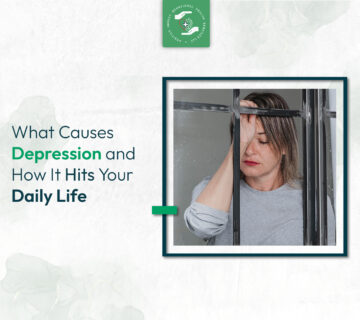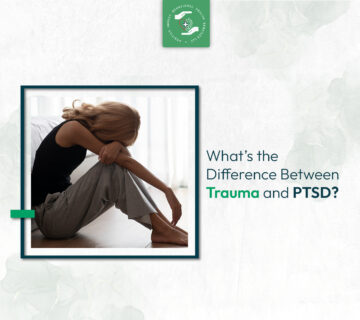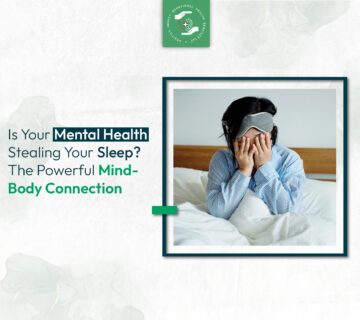In this guide, we’ll explore how mindfulness coping can be a powerful tool in managing anxiety and depression. With a friendly and simple approach, you’ll discover how integrating mindfulness into your daily life can make a significant positive impact.
What is Mindfulness Coping?
Mindfulness coping is a technique that involves being fully present in the moment, with a non-judgmental awareness of one’s thoughts, feelings, and bodily sensations. It’s a way of paying attention on purpose, in the present moment, and without judgment.
This approach stems from the practice of mindfulness meditation, but it extends beyond seated meditation to include various practices aimed at cultivating a moment-to-moment awareness throughout daily life. It’s about embracing the here and now, with kindness towards oneself and one’s experience.
The Science Behind Mindfulness and Mental Health
Research has shown that mindfulness can lead to reductions in anxiety and depression. It does this by changing the way the brain responds to stress and negative thoughts, essentially rewiring it to process these experiences more healthily.
Neuroscientific studies reveal that mindfulness practice can increase grey matter in areas of the brain related to emotional regulation, such as the prefrontal cortex, and decrease activity in the amygdala, which is often hyperactive in those with anxiety and depression.
Simple Mindfulness Exercises for Daily Life
One easy way to begin is by focusing on your breath. Simply notice the sensation of air moving in and out of your nostrils, or the rise and fall of your chest, without trying to change it. This can be done anywhere, anytime to bring you back to the present moment.
Another practice is mindfulness eating, which involves paying full attention to the experience of eating. Notice the colors, smells, textures, and flavors of your food, fully savoring each bite. This can help transform a routine activity into a moment of deep presence and enjoyment.
How Mindfulness Coping Specifically Helps with Anxiety
Mindfulness coping helps manage anxiety by teaching you to observe your anxious thoughts and feelings without judgment. Instead of reacting to them with fear, you learn to respond with awareness and curiosity. This can help reduce the intensity of anxiety symptoms and the power they hold over you.
It also allows for a greater understanding of the triggers that cause your anxiety, offering insights into patterns of thinking or behavior that can be gently challenged and changed over time.
How Mindfulness Coping Specifically Helps with Depression
For those struggling with depression, mindfulness coping can foster an attitude of acceptance towards difficult emotions and thoughts. By recognizing and observing these feelings without judgment, individuals can start to break the cycle of negative self-talk and rumination that often accompanies depression.
Additionally, mindfulness can help cultivate a sense of connectedness to the present moment, counteracting the tendency to withdraw and isolate that is common in depression.
Incorporating Mindfulness into Your Therapy Plan
Many therapists now integrate mindfulness techniques into their practice, recognizing their benefits for mental health. Discussing the incorporation of mindfulness into your therapy plan can provide a structured way to learn and practice these techniques under guidance.
It can be particularly beneficial to combine mindfulness practice with traditional therapeutic approaches, such as Cognitive Behavioral Therapy (CBT), to enhance self-awareness and emotional regulation skills.
Common Challenges and Tips for Mindfulness Practice
A common challenge is the frustration of not being ‘good’ at mindfulness, with wandering thoughts often seen as failure. It’s important to remember that the act of noticing your thoughts have wandered and gently guiding them back is the practice itself.
Starting with short, daily sessions and gradually increasing the duration can help build a sustainable routine. Additionally, exploring different forms of mindfulness, such as yoga or walking meditations, can keep the practice fresh and engaging.
Success Stories: Real-Life Examples of Overcoming Anxiety and Depression
Many individuals have found relief from anxiety and depression through mindfulness. Whether it’s through decreased medication reliance, improved relationships, or simply a greater sense of peace and well-being, the positive impacts are wide-ranging.
One person’s journey involved incorporating mindfulness into their daily routine slowly and found that, over time, they were able to experience moments of joy again, something they hadn’t felt in years.
Frequently Asked Questions About Mindfulness Coping
Can mindfulness be practiced by anyone? Absolutely, mindfulness is a universal practice that can be adapted to fit any lifestyle or belief system. It’s about finding what works for you.
How long does it take to see results from mindfulness? While some benefits can be noticed almost immediately, such as a sense of calm during a practice session, long-term changes in mental health may take weeks or months of consistent practice.
Embracing Mindfulness for a Brighter Tomorrow
Integrating mindfulness coping strategies into your daily routine can offer a new perspective in managing anxiety and depression. While it’s not a cure-all, it’s a step towards understanding and better managing your emotions. Remember, it’s about making small changes for a more mindful and fulfilling life.






No comment